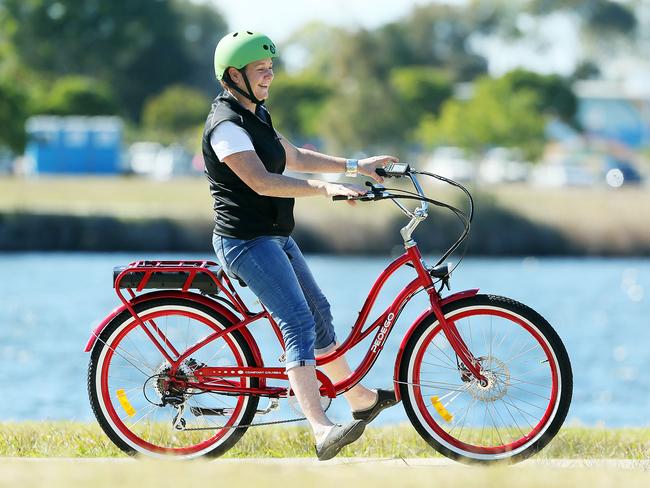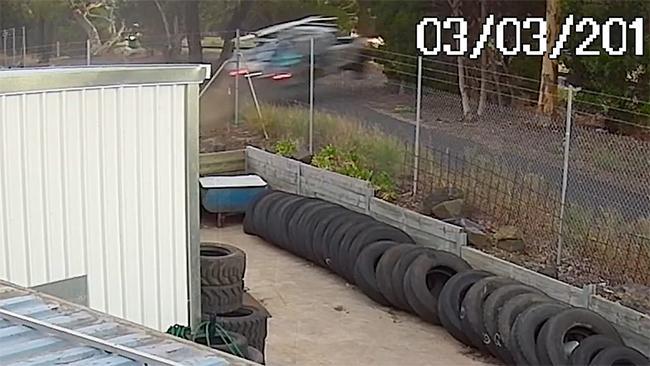Christian Haag: E-bikes, electric-assisted bicycle are the future of urban transport
THE e-bike makes cycling easy for old or young, inexperienced or novice cyclists.
- Victoria unlikely to copy SA bike distance laws
- Bike SA’s grand vision for Adelaide
- Stop behaving like idiots
- Bike brigade is big business
THEY call it “the e-bike smile” – that look you get when you turn your first pedal on an electric-assisted bicycle. And it’s a truly universal human experience.
It doesn’t matter if you’re old or young, an experienced bicycle rider or not, e-bikes – which boast a small motor that drives one of the wheels, making pedalling up hills and across town a breeze – are redefining transport.
Across the globe, cities are transforming their road networks and how their citizens move. While the detail of this transformation varies from city to city, a clear consensus has emerged: any government with a ‘steady-as-she goes’ strategy towards transport is delivering a recipe for a city in decline.
As the disruptive ride-sharing economy takes hold with the likes of UBER and Lyft and the holy-grail promises of electric and autonomous vehicles tantalise government, it remains a little-known fact that the electric mobility revolution is already well under way with the humble e-bike.

Globally, e-bikes are the highest selling electric vehicles on the market, with 35 million bought in 2016 alone and economists forecasting $24 billion in sales by 2025. That’s double-digit growth, year on year.
E-bikes represent a wave of transport transformation that is steadily sweeping the globe, from the Asia-Pacific region into Europe and more recently the US, it’s clear the wave is now reaching Australian shores.
Why all the fuss? It’s about affordable, accessible, low-cost transport.
There’s no longer a need for that sweaty commute thanks to the electric-assisted motor, no more hills to push up, pesky head-winds are a thing of the past, no additional infrastructure is required, you don’t need a licence, it makes car ownership discretionary and e-bikes deliver a low carbon footprint. And for older Australians, these bicycles provide more years of healthier and more active mobility.
Business has already seen the value for their transport fleets. Australia Post is among many that are counting the cost benefits of services being delivered by electric utility bicycles.
In all of this, there are tantalising opportunities for South Australian industry, particularly in light of the impending Holden closure. Of high value is our skilled automotive manufacturing and allied industry workforce, leading battery cell innovators and our universities that continue to produce world-best graduates creating new and disruptive solutions to address old problems.
The Australian bicycle industry is a significant and dynamic sector, with $2.7 billion in revenues and more than 10,000 employees. Nationally, cycle tourism is valued at $2.4 billion to the economy each year.
It is therefore timely that the government has announced a Bike Economy Summit to grasp the growing economic opportunities of getting more people on bicycles, including e-bikes, not just in SA but across the region. Now that’s something that is going to put a lot smiles on a lot of faces.
Christian Haag is CEO of Bike SA and a board member of the World Cycling Alliance

